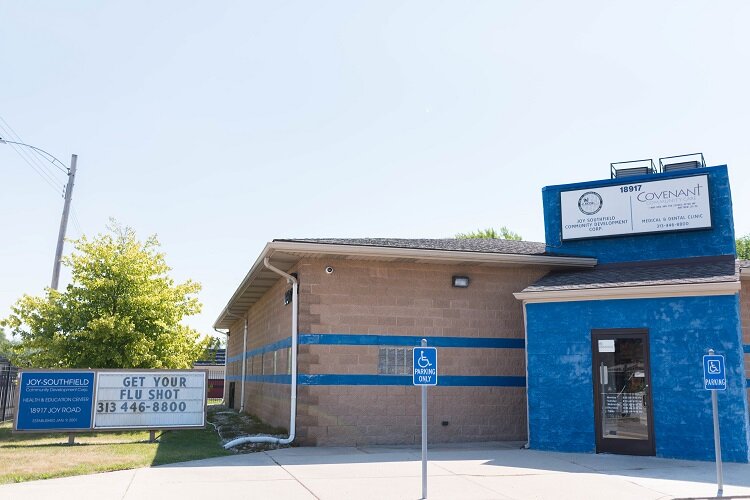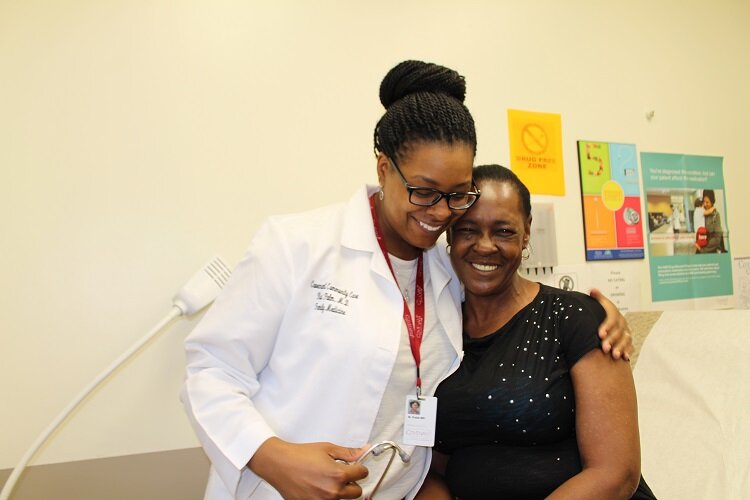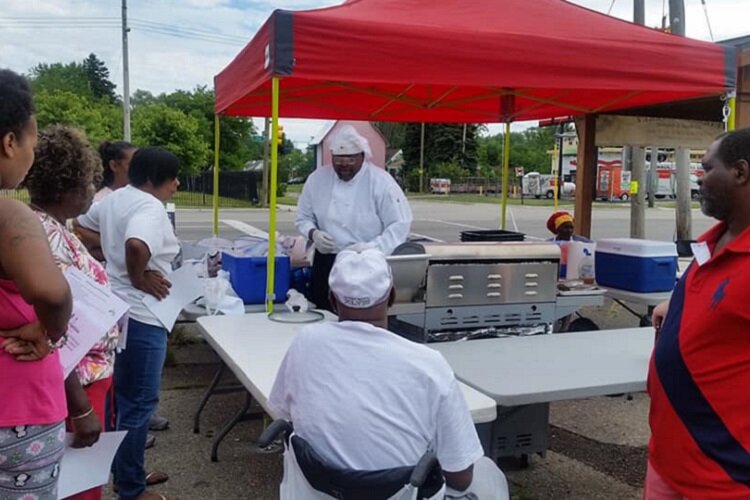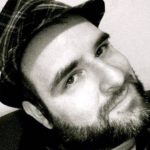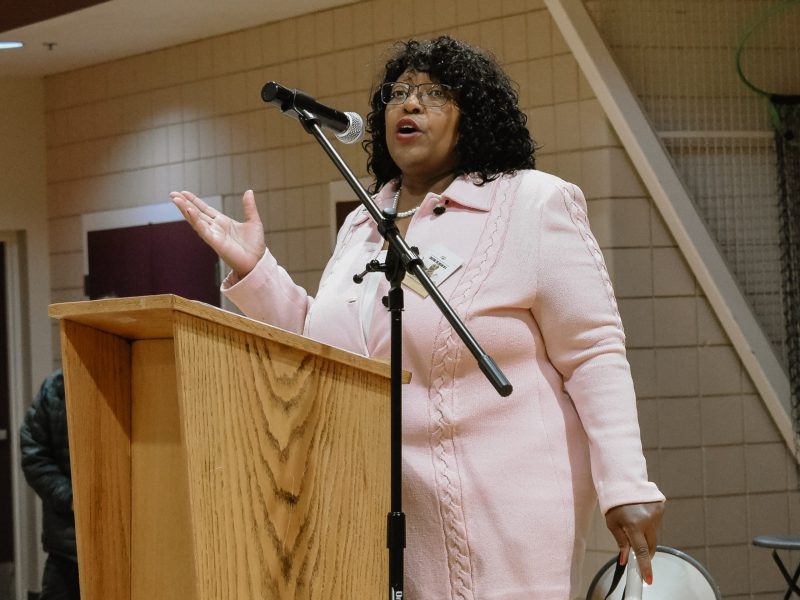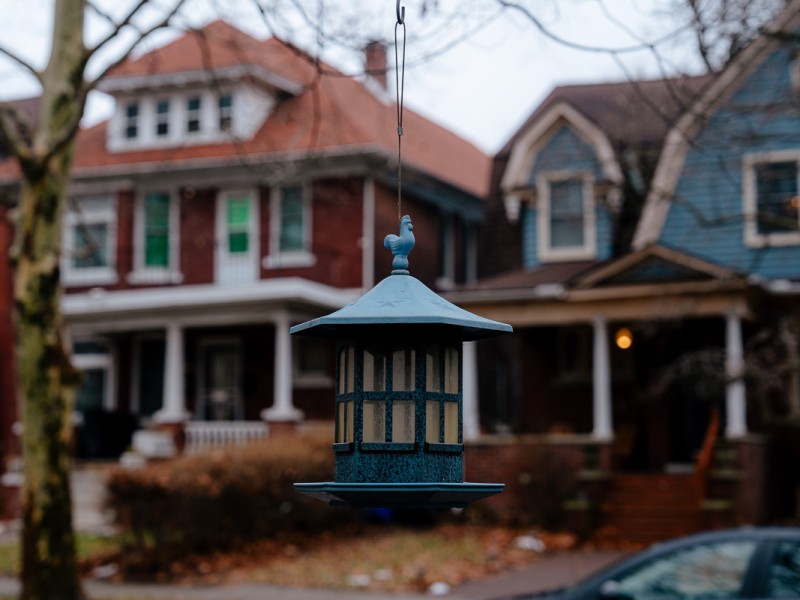Resilient Neighborhoods: Two nonprofits are forging a bold vision for health on Detroit’s west side
A partnership between Covenant Community Care and Joy Southfield CDC has brought more stability to a former free medical clinic and enabled them to better address community health issues.
Angy Webb was in a tough spot a few years back. The Detroit resident, who now works as a professional consultant, had found herself out of work and suffering from eye issues she worried might lead to blindness.
Fortunately, Webb was able to get assistance from a free medical clinic affiliated with a former employer of hers, the Joy
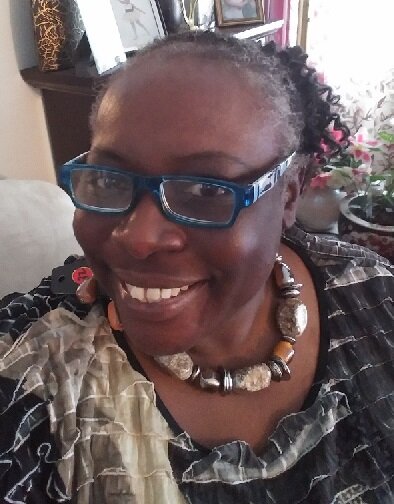
Southfield Community Development Corporation. The medical center, located not far from her home on the city’s west side, took good care of many of Webb’s health needs for free. And the staff even pointed her to a Southfield-based eye specialist, Dr. Bernard Miller, who could help her with her eye problems.
“I needed a referral, and I saw Doctor Miller, who would also see patients who didn’t have insurance,” she says. “He was a big blessing to me. He did a lot of work for my eyes to make sure that I kept them, and he didn’t charge anything at the time.”
Later, when Webb was in a better financial situation, she sent some money to Miller as compensation for the care he provided to her. While she has her own health insurance plan now, her experiences with Joy Southfield’s clinic left her grateful that the organization was able to help her out during a time of need.
“It was a great benefit to me. I didn’t have insurance at the time, like so many other people,” says Webb. “I appreciate not only getting the medical attention, but many times they would help me get prescriptions that I needed, especially since I’m diabetic.”
‘We serve the underserved’
Since it first opened in 2001, the medical center at 18917 Joy Road has helped countless patients like Webb.
Originally a free clinic run by Joy Southfield CDC, it’s now what’s known as a Federally Qualified Health Center that’s run by a faith-based nonprofit called Covenant Community Care. Right now, the two organizations still share a building and continue to work closely together.
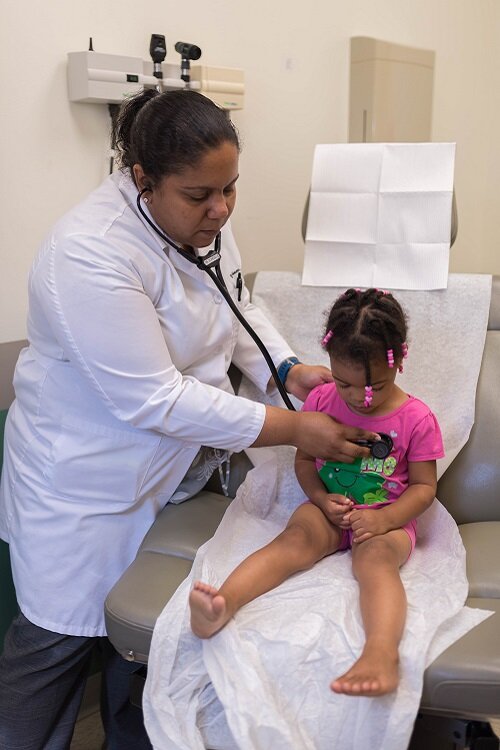
Joy Southfield made the decision to partner with Covenant — which also operates medical centers in Westland, Royal Oak, and at two other Detroit locations — six years ago.
“Back in 2013, free clinics, not just in Detroit, but across the country, were trying to figure out their next step, because the Affordable Care Act had expanded health insurance to so many more people,” says Covenant’s CEO Joslyn Pettway. “Covenant and Joy Southfield CDC went in together on what was called a new access point application from the Health Resources and Services Administration (HRSA) to turn the free clinic into a Covenant Community Care location.”
With financial support from HRSA, the medical center was able to reopen as a Federally Qualified Health Center.
By making that change, the clinic was now able to sign up qualifying patients on-site for expanded Medicare coverage in an area of Detroit where 19% of residents were uninsured, according to the 2010 U.S. census.
While it still treats people regardless of their ability to pay, the on-site access to insurance gives patients more options. And federal funding has brought more stability, allowing the medical facility to employ full-time staff as opposed to volunteers.
Dr. Kai Palm, the clinic’s medical director, is one of two full-time physicians at the facility, working alongside Dr. Duston Boyd. Since they’re both family practitioners, the clinic is able to assist patients of all ages with a range of different services.
“We serve the underserved. It’s what we do,” says Palm. “We offer preventative health care. We have integrated behavioral health care. We have a psychologist that works with us. And we have multiple nurses that incorporate patient education.”
The medical center now operates on fairly typical business hours, 8 a.m. to 5 p.m., with the exception of Tuesday when it’s open until 7 p.m. Patients come there for services like checkups and vaccinations, and to manage chronic conditions like
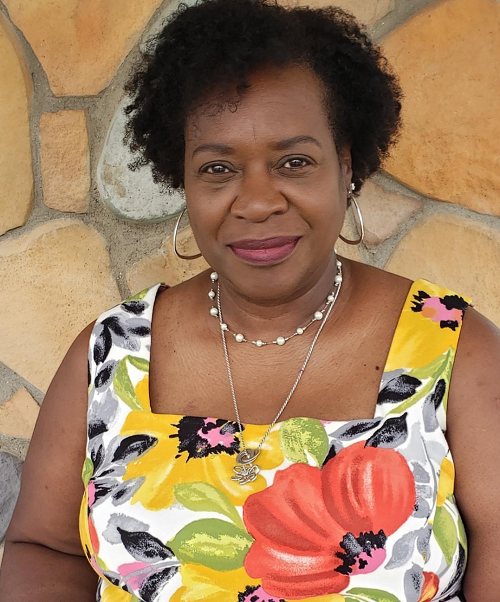
diabetes, hypertension, and asthma.
Beyond that, the Joy Road clinic also offers pop-up dental care at the facility two or three times a year. And, due to the pandemic, Covenant Clinic has also been offering curbside testing for COVID-19.
As for the folks who use the facility, they’re mostly from the surrounding Joy-Southfield community, an area, according to the census, where 61% of residents are low-income. According to Palm, the majority of the medical center’s patients live within walking distance, though some come from farther out — including a few from nearby suburbs like Dearborn and Livonia.
Carol Pickens is one of the patients who live a little farther away. It’s about a 15-minute car ride from her house. She’s been going to the clinic for about five years.
“I would definitely recommend it to other people,” she says. “The doctors and the nurses are very helpful, and they’re connected to Beaumont Hospital, which I like. I think you get as good service there as anywhere else.”
Focusing on the social determinants of health
Beyond being a loyal patient of Covenant’s Joy Road Clinic, Pickens also likes to take advantage of Joy Southfield CDC services such as its farmers market.
“I’ve used the market to get fresh vegetables and fruit,” she says. “And the [home repair] grants that they have are very helpful for people, especially seniors.”
While Joy Southfield turned over operations of the Joy Road medical clinic to Covenant Community Care in 2014, the CDC is
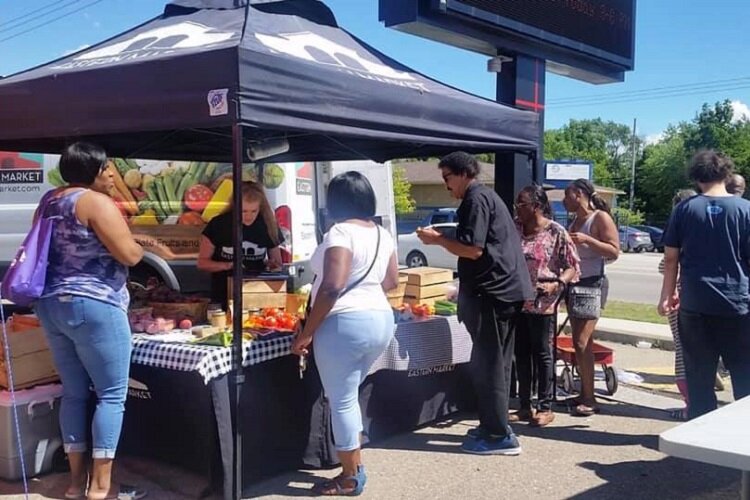
still dedicated to its traditional mission of serving residents in Detroit’s Cody Rouge and Warrendale neighborhoods (and as of last year the Detroit’s entire District 7 region). Nowadays, its programming and development work is more focused on addressing broader concerns tied to community health and well-being.
“We still have a very strong health focus, but it’s on the social determinants of health,” says Joy Southfield’s Executive Director Danielle Hilliker.
As Pickens mentioned, the nonprofit operates its own outdoor market, the Sowing Seeds Growing Futures Farmers Market. Launched in 2007, it’s typically open from June to October, though it went on hiatus this year due to COVID-19. As there are no grocery stores in the immediate area, the market allows community residents access to fresh produce and other food they would otherwise might have difficulty obtaining.
Located at Joy Road and Artesian Street, the market allows them to connect with local growers and vendors, try out samples, discover new recipes, and learn about cooking, nutrition, and healthy food options through cooking classes and related health education efforts.
In addition to the market and its other community and economic development activities, the nonprofit also sponsors several other health-related programs, including: Fresh Prescriptions, an initiative through which physicians can “prescribe” free produce for patients to redeem at participating farm stands and markets; Enhance Fitness, a free weekly low-impact aerobic exercise class for adults; H.E.Y. Detroit, a summer youth enrichment program geared toward engaging young people with physical activity, nutritional lessons, and gardening to encourage healthy development and learning; and Healthy Homes Rx, a home inspection, repair, and education program aimed at helping residents address potentially hazardous home-related issues like dirty ventilation systems, lead paint hazards, and asthma triggers.
Veronica Armstead, is a local block club leader who lives in the area surrounding the clinic, and she’s been quite pleased with the services offered by the nonprofit.
“The Joy Southfield organization has been instrumental in helping the community in and around Warrendale and Cody Rouge,” she says. “I actually do errands getting things [like food from them] for my block club members. It’s all been very positive.”
In addition to running its own programs, Joy Southfield has also been using its partnership with Covenant to connect with local residents.
“Covenant Community Care now refers patients — based on key indicators of chronic health illnesses — to us to provide resources and classes,” says Hilliker. “So if a patient is identified as having diabetes we can offer them to join in our dieting support group, enroll them in our healthy prescription plan. We also offer traditional education workshops for that.”
Navigating COVID-19
As with most nonprofits, the coming of COVID-19 has presented challenges to both Joy Southfield and Covent’s Joy Road Clinic. The CDC had to suspend several of its programs, including H.E.Y. Detroit, Enhance Fitness, and its Cooking For Change classes. As mentioned earlier, it also put its outdoor market on hold, opting instead to provide food boxes to local residents.
“There’s definitely a gap there,” says Hiliker. “What we did … is to offer produce boxes weekly instead of our farmers market. That’s been a shift in our focus to identify and fill that food shortage.”
The nonprofit was able to pass out about 100 boxes of produce each week on Tuesdays during the summer and fall. Unfortunately, it hasn’t been able to extend that activity into the colder months, due to funding constraints.
For the Covenant Clinic, the pandemic demanded some big changes from the staff.
“When COVID-19 first hit, our site closed in-patient care within that first month, and we went strictly to telehealth, which was
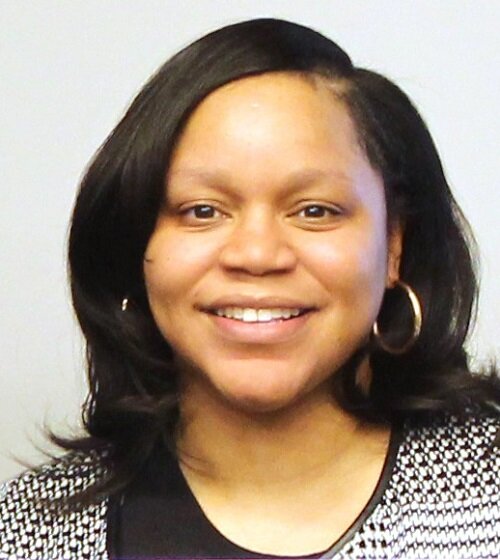
something we were not doing prior to COVID,” says Palm. “So for the organization to be able to go from 100% in-person to 100% telehealth within the matter of a week or two was really impressive.”
Although patients continued to be cared for the entire time, the transition wasn’t the easiest for staff who prefer being able to diagnose patients directly, since they’re better able to pick up on the nuances of symptoms that way. Right now, they’re almost fully back to in-person appointments, which they hope to maintain amid the second wave of the virus this winter.
In order to help contain the pandemic, the medical center has also been offering curbside COVID-19 testing for patients on Tuesday evenings and Friday mornings.
“Patients call ahead to schedule, and then they pull up in their vehicles,” says Palm. “We’re set up outside or in the vestibule of our building, and when the patients pull up we go out and collect their information. There’s limited contact, limited exposure to staff that way.”
Like a lot of local businesses and institutions, though, the pandemic has led to a staff shortage at the medical facility. In the early days of the outbreak, the clinic was down to its two physicians, their nursing managers, and two nurses. Right now, they have a receptionist and a clinic manager again, but the situation is still less than ideal. Throughout the crisis, Palm has been doing her best to balance the needs of patients in the community with the needs of staff.
The unexpected realities of the coronavirus have also slowed down plans to build a new facility for the clinic. In 2016 HRSA awarded Covenant Community Care a million-dollar grant to help build a new health center nearby, down the way on Joy Road on the other side of the Southfield Freeway. The one-story building will have about 9.000 square feet of space and would allow for more exam rooms and an area dedicated to dental care. The clinic hopes to bring on one or two more health care providers, including a primary physician focused on behavioral health.
Covenant hopes to have the new site completed by November of next year. And Pettway, in particular, is looking forward to embarking on its next step in the Joy-Southfield community.
“The current facility that we’re in has served us well. But if you go back to our 2013 conversation [with Joy Southfield], it was always discussed that we would try to expand,” she says. “So that’s something that we’re really excited about … as our organization continues to invest in the neighborhood by making good on that promise.”
Correction: An earlier version of this article referred to Dr. Nicole Prince being a physician at Covenant’s Joy Road clinic. Dr. Prince left the clinic last year in order to relocate to California. Dr. Duston Boyd now works alongside Dr. Palm at the medical center.
Resilient Neighborhoods is a reporting and engagement series that examines how Detroit residents and community development organizations are working together to strengthen local neighborhoods. It’s made possible with funding from the Kresge Foundation.
